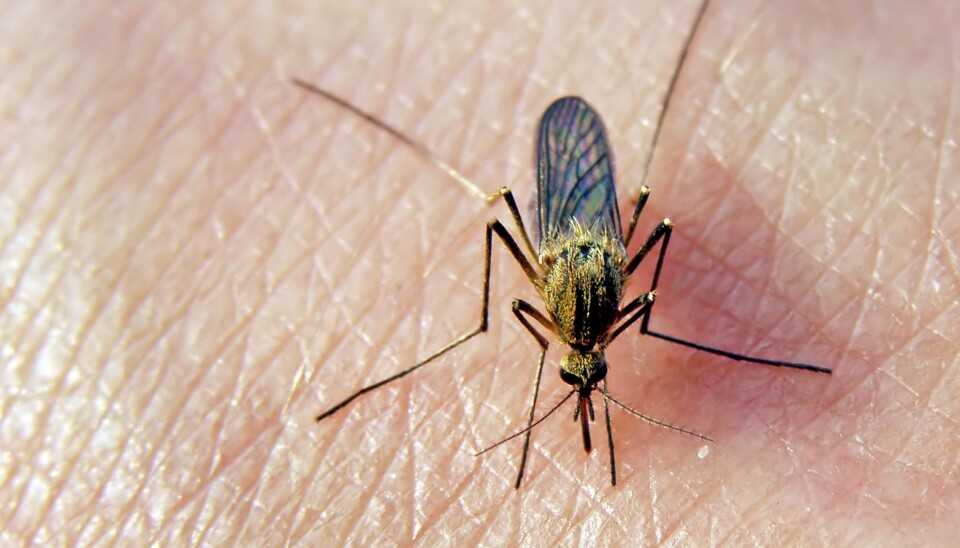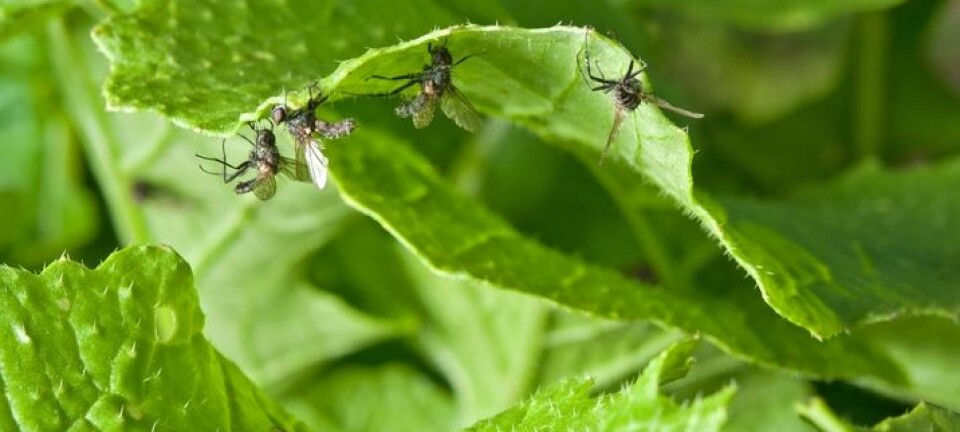
Bite me: why mosquitoes love some and leave others
Research reveals why some people are constantly under attack from the bloodsucking insects, while others walk free.
For those unfortunate enough to feature highly on the mosquito hit list, summer nights are synonymous with mosquito bites. Yet others hardly ever get bitten. So how do the bloodthirsty insects select their victims?
Scientists rubbed petri dishes against their stomachs
The mosquito season gives rise to countless speculations about possible solutions to the age-old mystery of mosquito preferences.
The insects’ tastes may seem arbitrary. However, research reveals that when mosquitoes make their choice between potential victims, it all comes down to scent:
“Mosquitoes are attracted by carbon dioxide and heat, which everyone gives off. But mosquitoes are also attracted by certain scents,” says Karl-Martin Vagn Jensen, the head of research at the Department of Agricultural Science at Aarhus University.
Mosquitoes are attracted by carbon dioxide and heat, which everyone gives off. But mosquitoes are also attracted by certain scents.
According to Jensen, it has not yet been established exactly what the scents in question are. But research does indicate that some scents are more attractive to mosquitoes than others.
“All the lab employees rubbed petri dishes against their stomachs. In that way, their scents were deposited on the dishes, which were then put in an enclosure full of mosquitoes,” he says.
“The mosquitoes repeatedly landed on some of the petri dishes, but didn’t go anywhere near the others. “
Vitamin B does not scare off mosquitoes
The experiment is one of several to squash one of the many myths concerning the unfortunate art of mosquito attraction.
The theory about vitamin B has been tested very, very thoroughly, and it doesn’t hold.
While some believe that it is in fact sour blood that keeps the insects at bay, or that the mosquitoes can detect blood disease, others are convinced that vitamin B provides protection against mosquitoes.
However, there is no indication that any of these theories are correct, says Jensen:
“There is no truth to that. The theory about vitamin B has been tested very, very thoroughly, and it doesn’t hold.”
Perhaps taking inspiration from popular fiction, there are also those who swear by garlic as an excellent repellent against the winged bloodsuckers. According to the researcher, though unsubstantiated, this strategy may not be entirely fruitless:
As far as I know, there is no scientific proof that eating garlic works. But there may be something to the theory that it’s possible to mask your scent with garlic.
“As far as I know, there is no scientific proof that eating garlic works. But there may be something to the theory that it’s possible to mask your scent with garlic,” he says.
Effective mosquito repellents on the market
The only reliable method of protection against mosquitoes is to use one of the effective repellents that are sold over the counter.
Mosquito repellent contains some smells that confuse the mosquitoes. The first thing a mosquito does when looking for prey is to see if there are any animals or people in the vicinity.
“When the mosquito comes closer, it uses smell, heat and carbon dioxide to decide whether to bite. But if it is confused by a repellent, it will never get that far,” says Jensen.
However, even repellents do not provide complete protection against the persistent insects.
“Repellents reduce the number of bites by as much as 70 percent. That’s all well and good, but you’ll still get bitten once in a while.”
---------------------------------
Read this article in Danish at videnskab.dk
Translated by: Iben Thiele








